
Folks who know me a bit know that my family was interned in the 1940s during WWII. This is a piece of family history that stays with me and I constantly reflect on its impact on my family and on me. I often talk about it in terms of my personal culture and in terms of the larger impact on racism. I continually come back to Japanese interment because the impact of that decision is generational. I feel residual impact and if I have children, they will also feel impact. This impact includes loss of culture, heritage and traditions, loss of family wealth, and I think one thing that I continue to fixate on, loss of language. While I consider it a personal goal to learn about internment and ways my family persisted, I think it is even more important for others to learn about it, the experiences of the Japanese people, and the politics used/abused to make it happen. Well, let’s move on to the actual content!
A Boy of Heart Mountain by Barbara Bazaldua
My grandmother was in the interment camp at Heart Mountain, Wyoming and I was able to visit the camp back in 2014 when I was driving from California to Massachusetts. I think Wyoming is a beautiful state to drive through but when I was in Heart Mountain, there is literally nothing around. When I was there, I purchased this book about the experience of a Japanese boy in the Heart Mountain camp. This book is simple and captures the dissonance between a child’s innocence and the hardship of living in the camp. As a part of my own journey towards understanding of my family’s history, this book is a treasure I will always own.
Citizen 13660 by Mine Okubo
I have boosted this graphic novel at any chance I can get. Mine Okubo writes and draws matter-of-fact-ly about her experiences in the internment camp. Her panels capture the pain, humiliation, resilience, and strength of the Japanese people in the camps. Two parts stood out to me: the first is about the close quarters and tiny things that I take for granted with my own space. The other were the scenes depicting the hypocrisy of honoring certain rights for citizens of the United States while keeping them in internment camps based on their cultural heritage. This will always be a sticking point for me when it came to enrolling Japanese men in the draft and pitching it as a civic duty.
Growing Up Nisei by David K. Yoo
My thoughtful and loving partner researched and gave this book for me as a gift. This is a non-fiction look into the Nisei or second generation of Japanese people in the United States and looks at where the Nisei fall in the US context. This is a much broader look at Japanese people in the United States, starting in 1924, but this book goes through the end of the 40s which will deal with the fallout of World War II and the internment camps. The Nisei generation born as United States citizens, have a unique experience with internment. I put this book on the list because I think it is important to understand the context of Japanese people in the US before the time of internment and get a sense of the experience of citizenship (maybe when other family members were not citizens) juxtaposed with the experience of internment.
Farewell to Manzanar by Jeanne Wakatsuki Houston
Another entry into the non-fiction category is this memoir by Jeanne Wakatsuki Houston. I find personal accounts of internment to be very compelling and humbling. Jeanne in her memoir shares her experience as a United States citizen and being uprooted as a child to live in the camps. This is a story of resiliency, family, and finding ways to live in the camp at Manzanar. While not stated explicitly, I think this book was written for or intended for a younger audience. Here is where I struggle with the book. It is often compared to memoirs of Holocaust survivors or The Diary of Ann Frank. Let’s be clear: While the interment of the Japanese was a terrible point in US history and infringed on the civil rights of Japanese people, I find it unhelpful and disrespectful to compare this event to the Holocaust. Let’s acknowledge both happened and center the voices that share their lived experiences.
Bonus: Baseball Saved Us by Ken Mochizuki
While I have not read this children’s book, I have heard stories about the importance of baseball in the internment camps for children. My grandparents were in the camp as children and had to figure out how to be a kid while under such terrible circumstances. I look forward to reading Baseball Saved Us and learn more about my grandparents experiences in the camps.
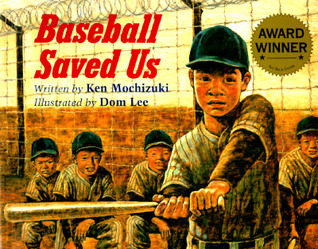
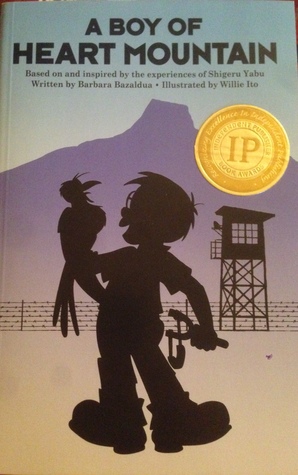
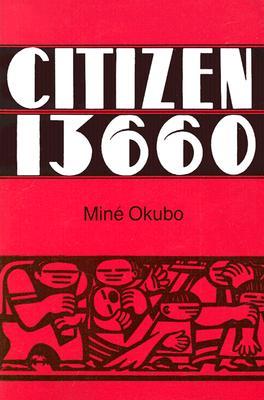
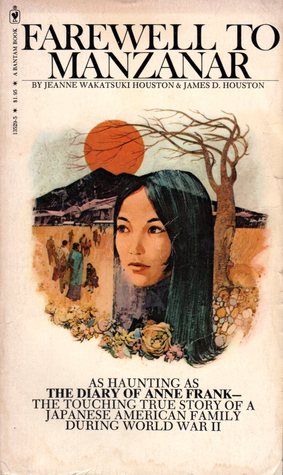
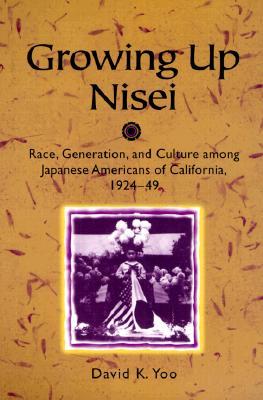
Thanks for sharing these books and your family’s history. I’ve only heard of “Baseball Saved Us”, but I’ll have to look into the other recommendations.
LikeLiked by 1 person
Posted by Life of a Female Bibliophile | March 21, 2018, 4:16 PMThank you for stopping by and sharing 🙂
LikeLiked by 1 person
Posted by Brendon | March 22, 2018, 7:30 AMAwww Brendon, this post is so incredible! Thanks so much for writing it, it’s really thoughtful and heart-felt 🙂
I’ll be checking some of these out (and adding some to my TBR!) 🙂
LikeLike
Posted by ceearrbooknerd | March 22, 2018, 2:38 PMHave you read The Buddha in the Attic? It’s a slightly different take on the internment.
“This will always be a sticking point for me when it came to enrolling Japanese men in the draft and pitching it as a civic duty.” — Minority groups in the US have so much in common yet our history is always told so separately. Imagine if our voices weren’t so fractured.
Thanks for sharing your family’s story with us. Generational trauma is real.
LikeLike
Posted by Akilah | March 24, 2018, 2:50 AM